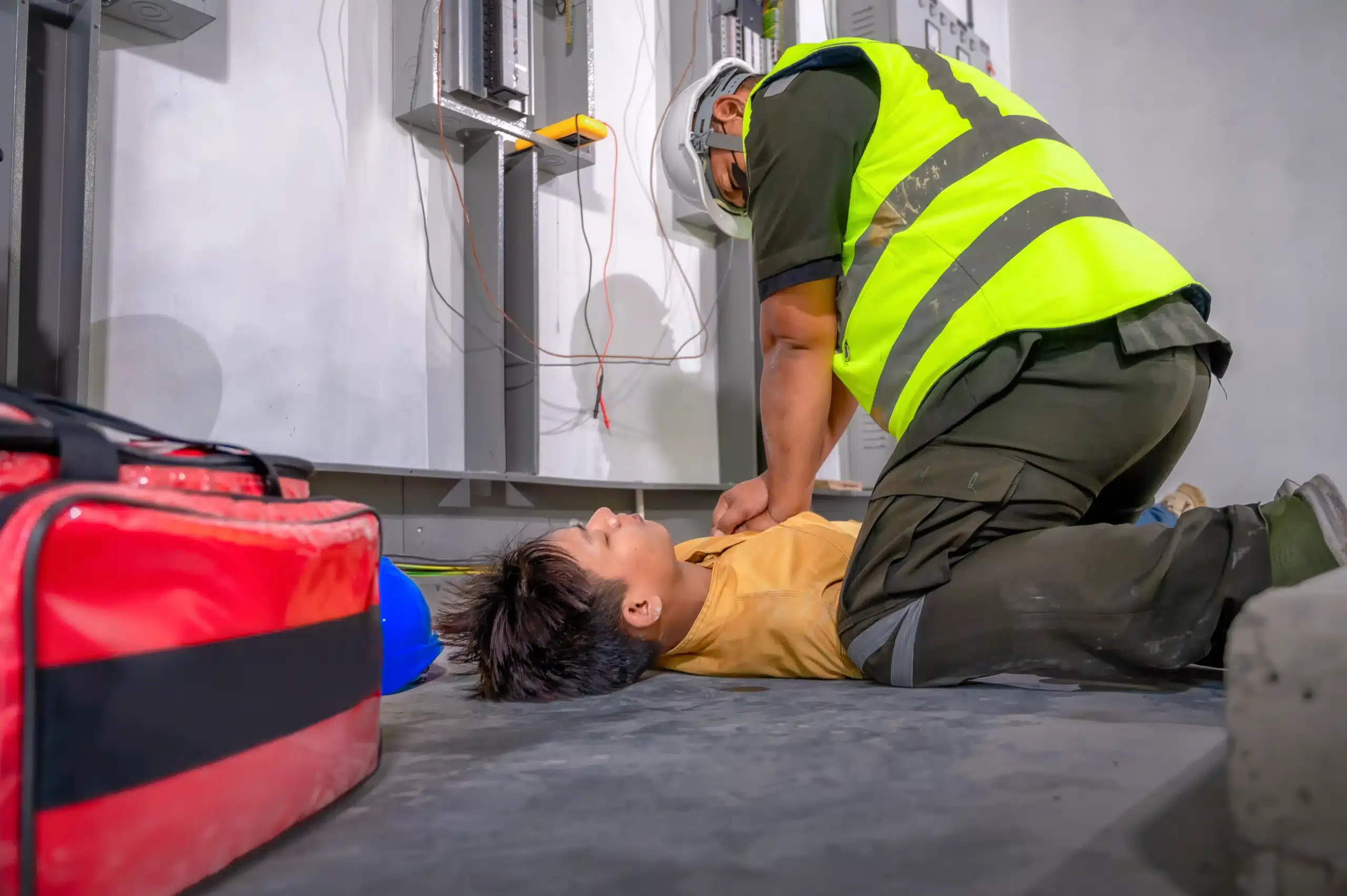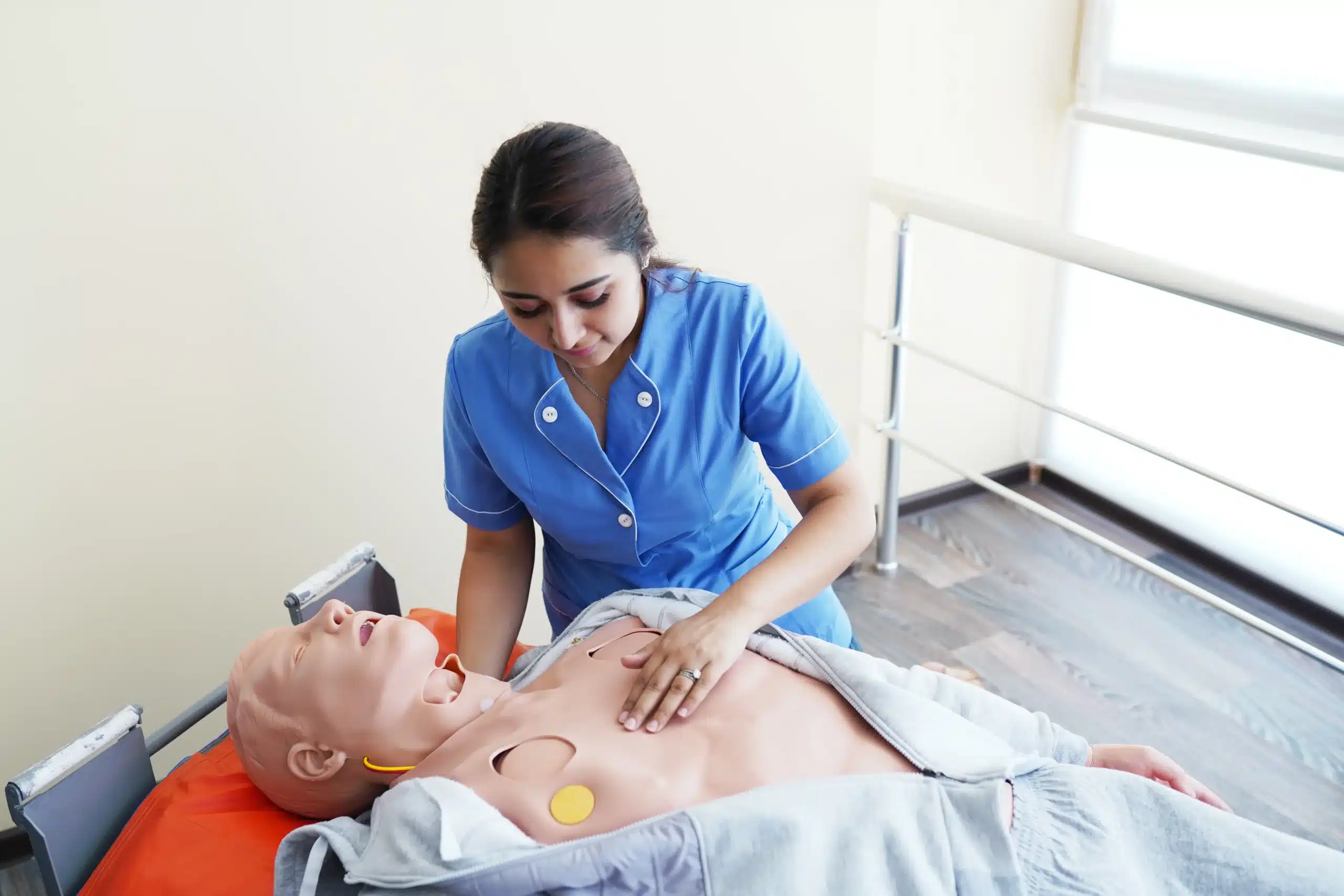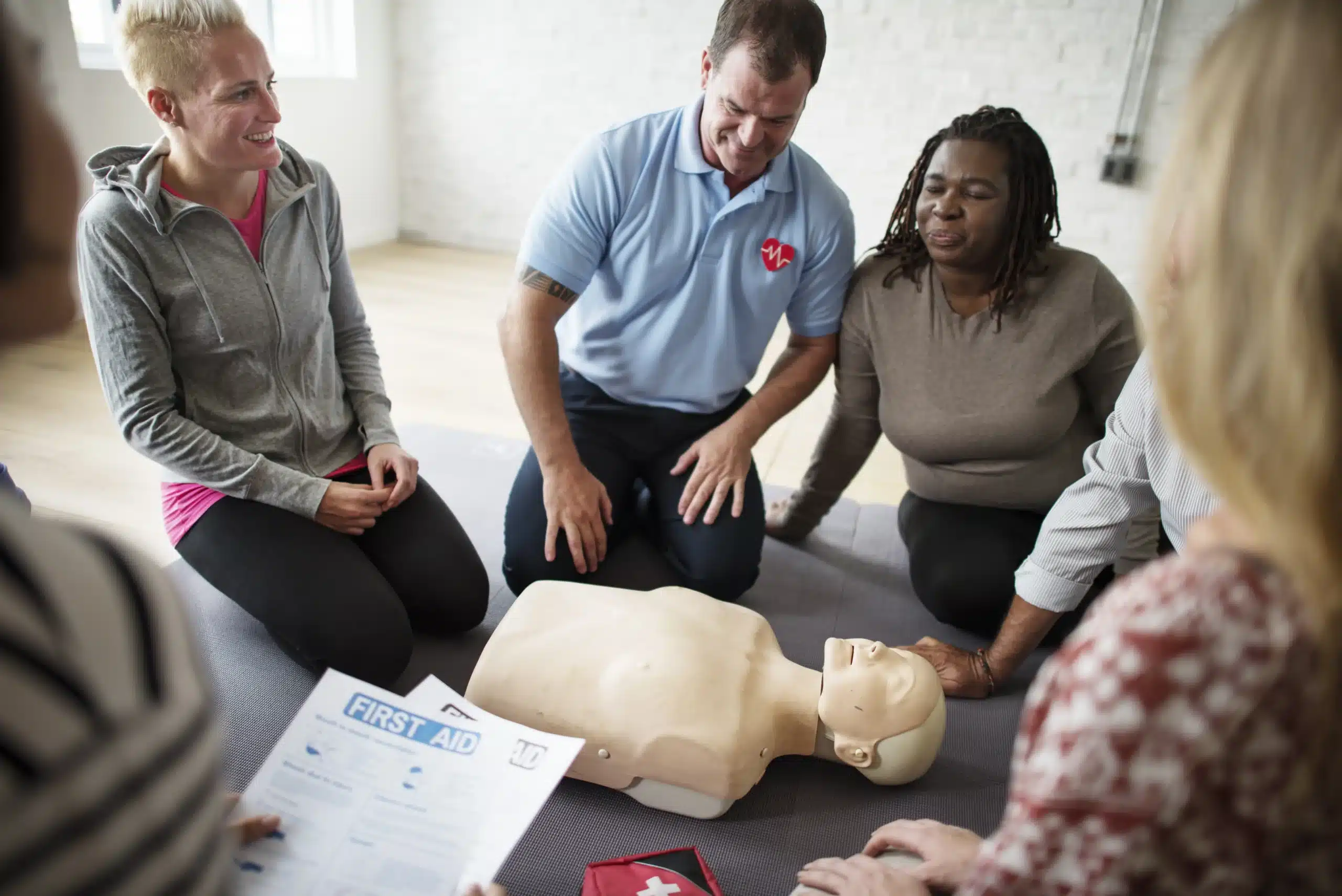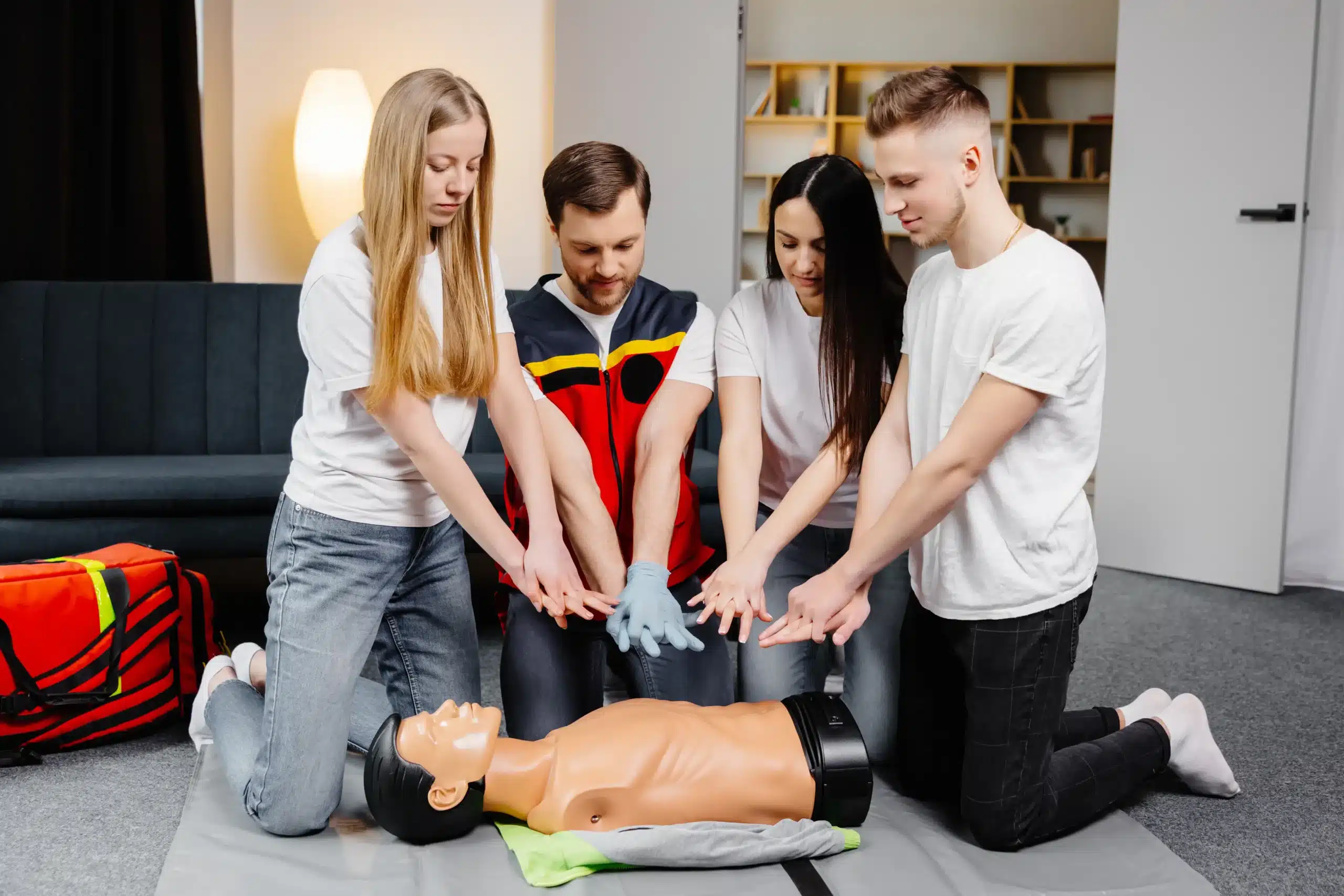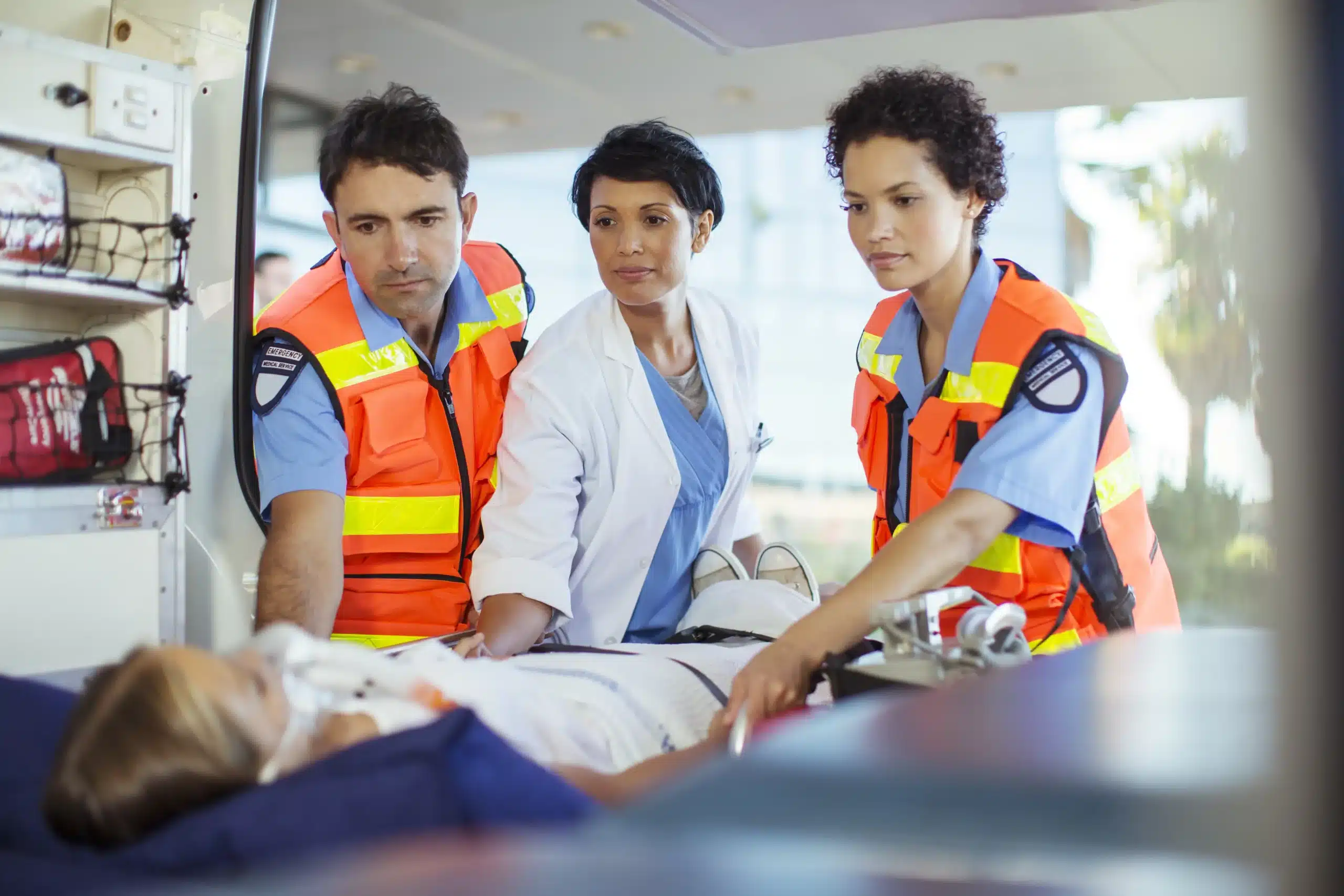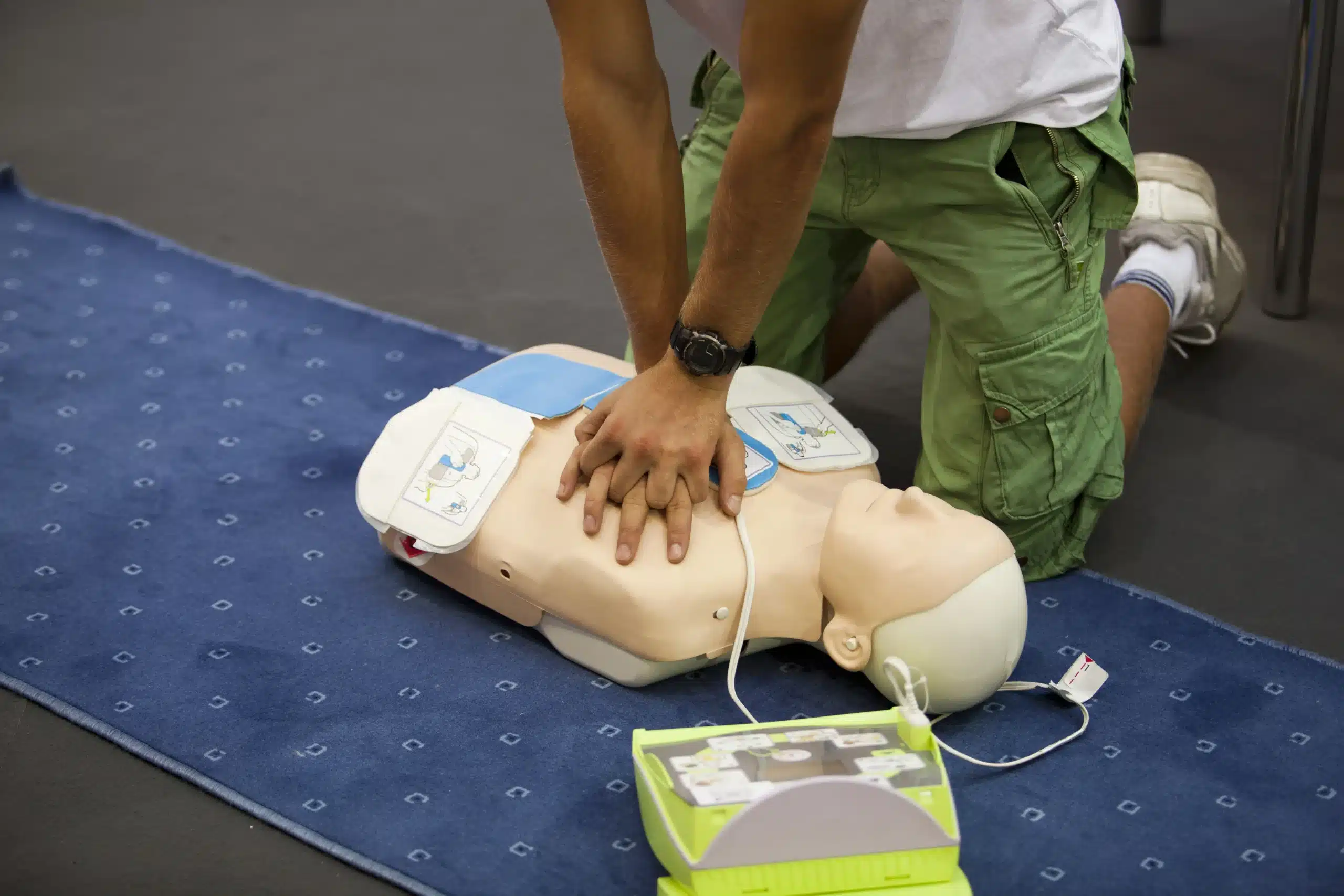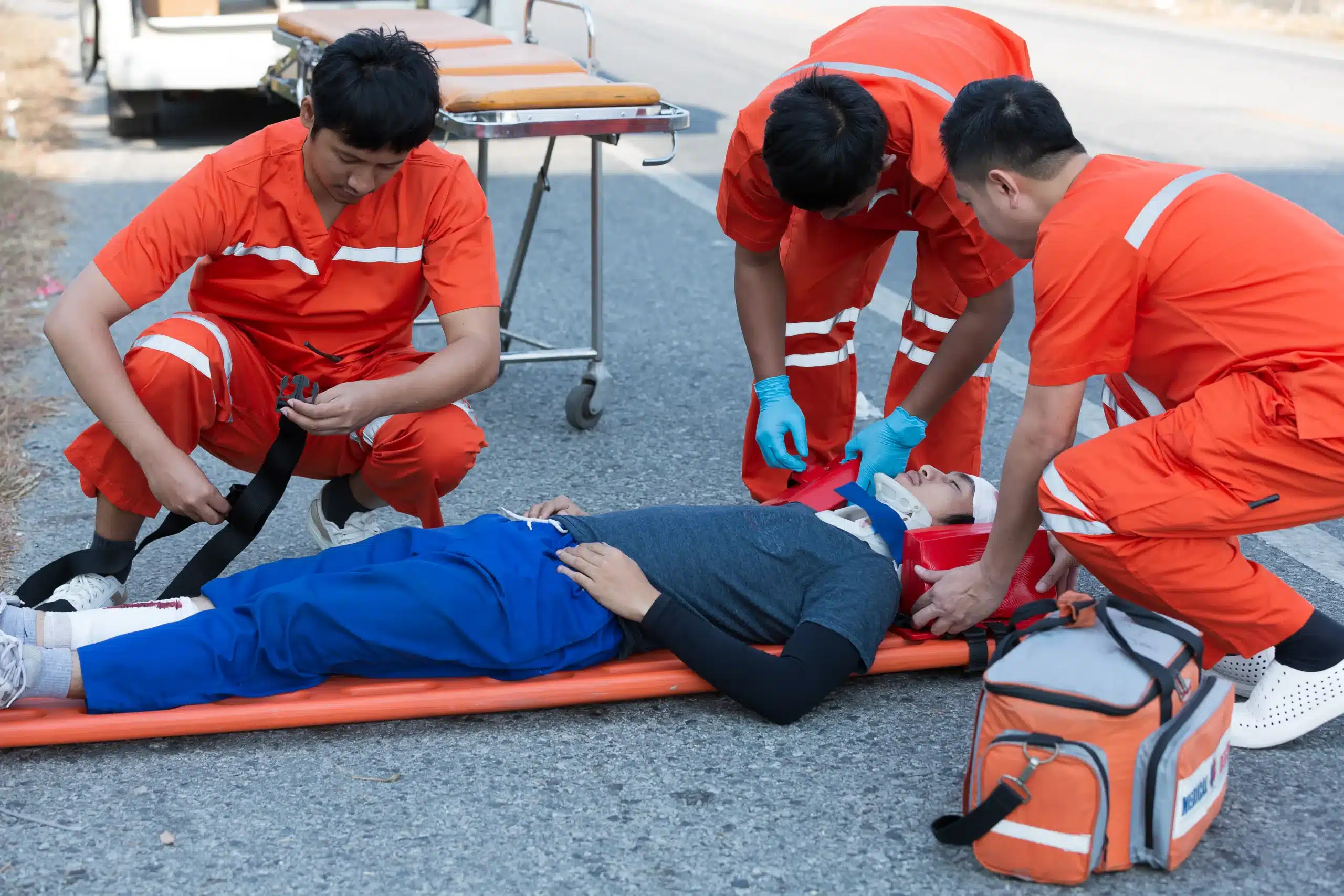Working in healthcare, you know that emergencies can happen anytime. Being prepared isn’t just about having the right tools; it’s about having the knowledge and skills to respond effectively. That’s where Advanced Cardiac Life Support (ACLS) training comes in. Whether you’re a seasoned healthcare provider or just starting your career, staying up-to-date with your ACLS certification is crucial for delivering the best possible patient care. This guide breaks down everything you need to know about ACLS courses in San Ramon, from understanding the certification process to finding the right training program for your needs. We’ll cover costs, course formats, and what to look for in a quality ACLS program.
Key Takeaways
- ACLS is essential for advanced life support: These courses empower healthcare professionals to handle serious cardiac and respiratory emergencies, going beyond basic CPR. Prioritize hands-on training and experienced instructors.
- Choosing the right course requires research: Consider your preferred learning style (in-person, online, or hybrid), your budget, and the training center’s reputation. Confirm instructor qualifications and any required materials.
- Preparation is key for a smooth learning experience: Ensure your BLS certification is current and you have the correct ACLS Provider Manual. Completing any pretests beforehand will help you get the most out of your ACLS course.
What are ACLS Courses & Why Do They Matter?
ACLS stands for Advanced Cardiac Life Support. These courses are designed for healthcare professionals like doctors, nurses, paramedics, and respiratory therapists who may need to manage life-threatening emergencies. Think cardiac arrest, stroke, or severe breathing problems—situations where seconds count. ACLS training from providers like Dublin CPR Classes gives you the skills to act quickly and confidently.
These courses go beyond basic CPR. They cover a range of topics, including how to recognize and treat different heart rhythms, manage airways, and administer medications in emergency situations. Effective communication and teamwork are also key components, as these situations often involve multiple healthcare providers working together. ACLS courses build on the foundation of Basic Life Support (BLS) skills, adding another layer of expertise. If you’re a healthcare provider, having current ACLS certification demonstrates your commitment to providing high-quality patient care in critical situations. It’s a vital credential for many healthcare roles and can significantly impact patient outcomes.
Find ACLS Courses in San Ramon
Finding the right Advanced Cardiac Life Support (ACLS) course means considering several factors, from location and cost to the instructor’s experience. Here are a few providers in and around San Ramon to get you started:
Dublin CPR Classes
Dublin CPR Classes offers ACLS certification alongside other essential life-saving courses. Conveniently located near San Ramon, they provide a practical option for local training. Check their website for upcoming course dates and registration information. They also offer a low price guarantee, ensuring competitive pricing.
Other Local Providers
Lifework Education
Lifework Education (formerly HeartShare Training) offers ACLS courses in both in-person and online formats. Their proximity to San Ramon Regional Medical Center makes their location convenient. Explore their San Ramon course options on their website.
Heart Start CPR
Heart Start CPR has provided CPR and emergency training in the Bay Area since 2003. They offer a range of courses, including ACLS, with options for both classroom-based and online learning. Their American Heart Association certification ensures a recognized and respected credential.
All Care Health Services
All Care Health Services provides ACLS training with a focus on preparation. They require students to complete an online pretest and have the current AHA ACLS Provider Manual. Learn more about their ACLS course requirements on their site. As an official American Heart Association Training Center, they maintain high standards.
Understand Costs & Course Formats
Before committing to an ACLS course, it’s helpful to understand pricing and the different course formats available. Knowing what to expect upfront simplifies finding the right fit for your budget and learning style.
Initial Certification & Recertification Costs
ACLS courses typically have separate costs for initial certification and recertification. For example, a combined online BLS and ACLS certification course can cost around $370, while recertification is usually less, around $240. Remember that pricing varies between providers, so check with specific training centers like Dublin CPR Classes for their latest pricing.
Group Discounts & Bundled Options
If you’re organizing training for a group, look for providers offering group discounts. Many companies, like Lifework Education, provide on-site group training, which is often more convenient and affordable. Bundling courses, such as BLS and ACLS, can also save money. Contact Dublin CPR Classes about their group discounts to explore potential savings.
Compare Training Formats: In-Person, Online, & Hybrid
ACLS courses typically come in three formats: in-person, online, and hybrid. Each format has its pros and cons, so consider which best suits your needs. Providers like Heart Start CPR offer both online and on-site training, giving you choices in how you learn.
Weighing Format Pros & Cons
In-person classes offer hands-on learning and direct interaction with instructors. These courses often have small class sizes for a low-stress environment and more individual attention. Online courses offer the convenience of learning at your own pace, wherever you are. Many online programs offer instant access to digital certification cards after you pass the exam, a significant advantage for busy professionals. Hybrid courses combine online and in-person learning for a blended approach. Consider your learning style, schedule, and comfort level with technology when choosing a format.
Check Instructor Qualifications & Course Quality
Before you sign up for an ACLS course, take a few minutes to check out the instructors’ qualifications. It’s smart to look for a program taught by experienced medical professionals, such as firefighters, paramedics, or EMTs. Their practical knowledge adds a lot of value to the training. Look for programs, like those offered by Heart Start CPR, that emphasize real-world experience.
Medical Background & Experience
Instructors with hands-on experience can offer insights you won’t find in a textbook. They can answer your questions about real-world scenarios and share best practices they’ve learned on the job. This practical knowledge can boost your confidence and preparedness.
Teaching Credentials & Expertise
Beyond on-the-job experience, look for instructors with solid teaching credentials. Make sure the course is accredited by a reputable organization like the American Heart Association. This ensures the program meets industry standards and covers all the essential material. Providers like ACLS Bay Area offer AHA-certified courses. Also, check if the program offers different learning formats, such as in-person, online, or a hybrid approach. ACLS Medical Training offers a variety of formats to fit different learning styles and schedules. Having options is always helpful.
Review Prerequisites & Materials
Before you sign up for an ACLS course, take a few minutes to gather the necessary certifications and materials. Being prepared will make your learning experience smoother and more effective.
Required Certifications (BLS)
You’ll need a current American Heart Association (AHA) Basic Life Support (BLS) for Healthcare Providers certification before enrolling in an ACLS course. Double-check the expiration date—your BLS certification can’t be expired to qualify for ACLS training. This requirement ensures everyone in the course has the most up-to-date life-saving skills. If your BLS certification is about to expire, or has expired, consider registering for a BLS course alongside your ACLS course. Many training centers, including Dublin CPR Classes, offer combined courses and group discounts.
Essential Study Materials
The current AHA ACLS Provider Manual is a must-have for the course. This manual covers the essential protocols and guidelines you’ll be learning. You can typically purchase the manual directly from your chosen training center, like Dublin CPR Classes, or from other online bookstores. Make sure you have the most recent edition before class begins.
Prepare for Your Course & Online Pretests
Many ACLS courses require an online pretest to gauge your baseline knowledge before the course starts. Check with your chosen provider for specific instructions. You might need to print your completion certificate or email it to the training center in advance. Completing the pretest helps you and your instructor understand your current knowledge and ensures you’re ready to dive into the course material.
Choose the Right ACLS Course
Finding the right ACLS course isn’t just about ticking a box; it’s about ensuring you get high-quality training that fits your needs. Here’s what to consider:
Assess Your Learning Style & Schedule
Think about how you learn best. Do you thrive in a traditional classroom with face-to-face interaction, or do you prefer the flexibility of online learning? Dublin CPR Classes offers both in-person ACLS training and online options, so you can choose the format that suits your learning style. Also, consider your schedule. Do you need a weekend course, an evening class, or the ability to learn at your own pace online? Finding a course that works with your availability will make the learning process much smoother. Dublin CPR Classes offers a range of schedules and formats to accommodate busy professionals and individuals with varying commitments.
Evaluate Course Reviews & Reputation
Before committing to a course, do some research. Look for student reviews and testimonials. What are people saying about the instructors, the materials, and the overall experience? Positive feedback is a great sign you’re choosing a reputable provider. Dublin CPR Classes emphasizes its commitment to customer service and competitive pricing, which can be reassuring when making your decision. Don’t hesitate to reach out to past students or check online forums for candid opinions.
Consider Location & Accessibility
If you’re opting for in-person training, location matters. Is the training center easy to reach with convenient parking? Dublin CPR Classes serves Dublin, Livermore, and San Ramon, making it a convenient option for residents of the Tri-Valley area. Think about your commute and traffic, especially for after-work or weekend classes. If accessibility is a concern, inquire about facilities and accommodations at the training center. For those in San Ramon, Lifework Education offers classes near the San Ramon Regional Medical Center. Contact providers directly to discuss your specific needs and preferences.
Enroll in Your ACLS Course
Ready to take the next step? Before committing to an ACLS course, it’s wise to compare a few providers around San Ramon. Here are some options and factors to consider:
We offer a range of ACLS courses at Dublin CPR Classes designed for various schedules and learning styles. Check our website for upcoming dates and times.
A few other local providers also offer ACLS training: Lifework Education (formerly HeartShare Training) has several options, including online and in-person ACLS certification. Heart Start CPR has served the Bay Area since 2003 and prioritizes a positive learning environment for their ACLS courses.
Before enrolling, confirm the course prerequisites. Most ACLS courses require a current American Heart Association (AHA) Basic Life Support (BLS) for Healthcare Providers card and the current AHA ACLS Provider Manual. You’ll likely need to complete an online ACLS pretest as well.
Need both BLS and ACLS certifications? A bundled course might be a good fit. These combined programs offer a more streamlined learning experience. ACLS Medical Training is one place to explore bundled options.
ACLS FAQs in San Ramon
Finding the right ACLS course can feel overwhelming, so we’ve compiled answers to some common questions to help you feel prepared. Hopefully, these FAQs clear up any confusion and make your search for ACLS training in San Ramon a little easier.
1. Can I take an ACLS course online?
Yes, online ACLS courses are definitely an option. Many providers offer online or blended learning formats, providing flexibility if you have a busy schedule. The HeartCode® ACLS Online program is a popular self-directed choice. It uses adaptive learning technology, which means the program adjusts to your individual learning pace and style. This personalized approach can be a really effective way to learn the material. Just remember to double-check whether the online portion requires a separate in-person skills session for full certification.
2. How long does it take to complete an ACLS course?
The time commitment for an ACLS course depends on the format and the specific provider. A standard ACLS Instructor-Led Training (ILT) Full Course typically involves about 10.25 to 11.25 hours of instruction, not including breaks. With breaks factored in, expect to spend closer to 15-16 hours total. Online or blended learning courses often offer more flexibility, allowing you to work through the material at your own speed.
3. What do I need to bring to an ACLS course?
A few key items are essential for your ACLS class. You’ll need a current, unexpired American Heart Association (AHA) Basic Life Support (BLS) for Healthcare Providers certification card. Also, make sure you have your current AHA ACLS Provider Manual, which is key for following along with the course content. Most courses also require an online pretest, so bring a printed copy of your pretest completion certificate to class.
4. Can I get BLS and ACLS certified at the same time?
Yes, it’s often possible to pursue both certifications simultaneously. Many training centers offer combined BLS and ACLS certification courses. This can be a convenient and efficient way to knock out both certifications, and sometimes you can even find a discounted rate. If you need both, check with your chosen provider about this option. It can save you valuable time and effort.
Related Articles
- ACLS Courses in Dublin: Your Complete Guide – Dublin CPR Classes
- ACLS Renewal Livermore: Your Complete Guide – Dublin CPR Classes
- ACLS Renewal in San Ramon: Your Guide – Dublin CPR Classes
Frequently Asked Questions
1. How much does an ACLS course cost in San Ramon?
ACLS course fees vary depending on the training center and whether you’re pursuing initial certification or recertification. Recertification courses are typically less expensive than initial certification. It’s always a good idea to contact the specific provider, like Dublin CPR Classes, for their most up-to-date pricing. They also offer a low-price guarantee, so you can be confident you’re getting a competitive rate. Don’t forget to ask about potential group discounts if you’re training with colleagues.
2. What’s the difference between in-person and online ACLS courses?
In-person ACLS courses provide hands-on training and direct interaction with instructors, which many students find beneficial. You get real-time feedback and can practice skills in a controlled environment. Online courses offer more flexibility, allowing you to learn at your own pace and around your schedule. Some providers offer hybrid courses, combining online learning with in-person skills sessions, offering a balance of both formats.
3. Do I need any prior certifications before taking an ACLS course?
Yes, you’ll need a current American Heart Association (AHA) Basic Life Support (BLS) for Healthcare Providers certification before starting ACLS training. Make sure your BLS certification isn’t expired when you enroll in an ACLS course. If your BLS card is close to expiring, or has expired, consider taking a combined BLS/ACLS course to renew your BLS and obtain your ACLS certification simultaneously.
4. How long is an ACLS certification valid?
ACLS certifications are typically valid for two years. To maintain your credentials, you’ll need to complete a recertification course before your current certification expires. Staying current with your ACLS certification ensures you’re up-to-date on the latest guidelines and best practices for managing cardiovascular emergencies.
5. How do I choose the right ACLS course provider?
Choosing the right provider involves a few key considerations. Look for instructors with extensive medical backgrounds and real-world experience. Check if the training center is accredited by a reputable organization like the American Heart Association. Consider the course format (in-person, online, or hybrid) and choose what aligns best with your learning style and schedule. Finally, read reviews and testimonials from previous students to get a sense of the training center’s reputation and the quality of instruction.


